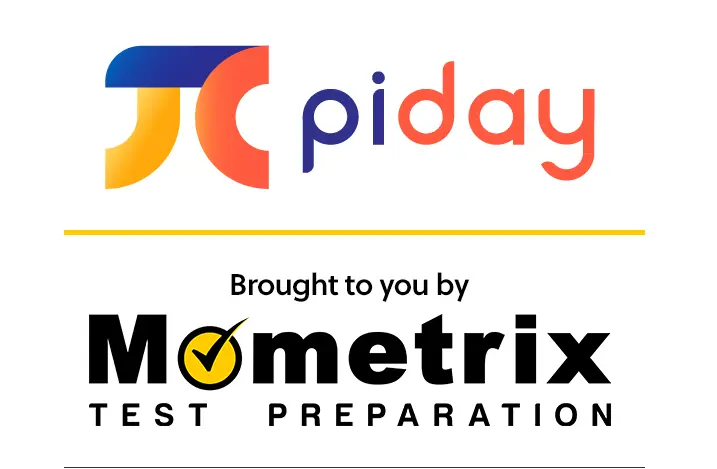What is Raspberry Pi?
Raspberry Pi is a single-board computer developed in the United Kingdom. Introduced in 2012, Raspberry Pi quickly exceeded its popularity and original mission – to promote and teach basic computer science. Today, virtually every industry has developed a use for Raspberry Pi. Private and public sectors use the economically friendly device for automation, research, and medical applications. Even NASA, the International Space Station, and the UK Space Agency use Raspberry Pi to run applications and collect data.
Learning something new, especially something perceived as highly technical and advanced can be overwhelming. Often, the first steps are the hardest – where do I begin? What do I need? How can I make this happen? Do I have the support I need to find the answers to my questions? Raspberry Pi has everything you need to take your first foray, or advancement, into computer science. First, let’s figure out where you fit, and then we’ll discuss the next steps for that category.
Computer Curious (Newbie)
You are comfortable with your smartphone, can program your DVR and television, and even know how to use smart appliances like a dishwasher or refrigerator. Even if you have kept the technological advancements away from your kitchen, you know how to run the programs on your computer or play video games. You can use technology effectively but find yourself wondering how something runs and why it runs that way. If Python, Scratch, Linux, and Unity are just words to you, then you are computer curious (aka – Newbie). Additionally, if you are working with someone (child, spouse, coworker, etc.) who falls in this category, you, as a group, are a Newbie.
Computer Comfortable
Somewhere between the Newbie and the Old Hand are those who have computer skills above surfing the Internet, email, and basic word processing programs. A Computer Comfortable person entails experience with operating systems, office suites (Microsoft Office and G Suite, for example), presentation software, collaboration tools (Skype, Zoom, Hangouts, etc.), spreadsheets, and accounting software. Through this kind of experience, you have learned basic formulas and programming, and you effectively use these more advanced tools. If you are working with someone who falls into this category, you, as a group, are Computer Comfortable.
Old Hand
You are an Old Hand if you’ve ventured out from established software and hardware. If you’ve built a motherboard, know a little bit of programming code, and can develop a running program, you and whomever you may be working with are in the Old Hand group. You have the skills and experience on which you can develop knowledge that is more intricate and advanced.

Choosing your Pi
Once you have determined your knowledge level, it is time to select the Raspberry Pi board that is best suited to your goals. There are nine models of the Raspberry Pi, ranging in cost from $5.00 to $55.00. The amount of money you want to invest, the time you have to explore and learn, and your ultimate goals determine which model you buy. Each model is compatible with one another. If you start with the Raspberry Pi Zero, the lowest-cost single-board computer, and decide you need a Pi with more features, you can upgrade to any of the available models; the work you’ve done on the Zero will still function.
If you’re unsure about which model is best, know that you can’t go wrong with any of the models, and at their price points, even using the most expensive board for one or two projects does not result in a considerable loss of monetary investment. However, if you’re not sure how involved you’ll stay with your new project, then purchasing the $5.00 model is a safe way to go. If it ends up in the junk drawer after a few months, you’ve lost little more than time. But if you catch the Pi bug, any of your projects transfer to the more advanced models.
Pi Projects
Based on your experience (Newbie, Computer Comfortable, or Old Hand), let’s discuss the available projects. Keep in mind that this list is not the end-all and be-all of its potential. The tasks and projects that you take on will increase in difficulty, intricacy, and complexity as your knowledge and confidence grow.
At the Newbie level, projects that introduce you to coding and circuits are perfect beginner-level projects. Such projects include controlling LED lights, creating a digital picture frame, building personal cloud storage, learning Scratch to code a game, making an alarmed motion sensor, and having music play automatically when you enter a room.
Projects for the Computer Comfortable include building an RFID attendance system, setting up a network scanner, building a digital clock, building a quiz game with buzz controllers, building a twitter bot, building a webcam server, and utilizing a Raspberry Pi email server using Citadel.
If the above projects are too basic for the Old Hand in you, you can try an advanced project that puts your coding and engineering skills to use. For example, build a robot that you program and control remotely, make a handheld console for a video game, create a laptop for your Raspberry Pi, build a smart CCTV system that recognizes friends and family, or develop and build a home security system.
Each project you attempt gives you the chance to practice what you have learned and build on that knowledge. Whether your ultimate goal is an off-the-grid smart home or just an understanding of computer coding, Raspberry Pi grows with you without being left to your own devices. The Raspberry Pi Foundation has video tutorials, blogs, community rooms, and lesson plans available to anyone through their website. Volunteers across the country run Raspberry Jams (meet-ups for creating with Raspberry Pi), Coder Dojos (coding club for youth 7 to 17), and in-school Code Clubs run as extracurricular activities at public schools (youth 9 to 13).
In short, Raspberry Pi, whatever model you go with, is a valuable tool to learn coding and computer science. Specialized equipment is needed, depending on the task you’re attempting, but the essential equipment is readily and economically available. The application possibilities of Raspberry Pi grows with you, becoming more robust and technologically advanced as your knowledge, skill, and confidence grow. With a minimal investment, Raspberry Pi is an incredible tool to promote and encourage computer science exploration and worthy of your time. Feed your curiosity and give Raspberry Pi a try.

